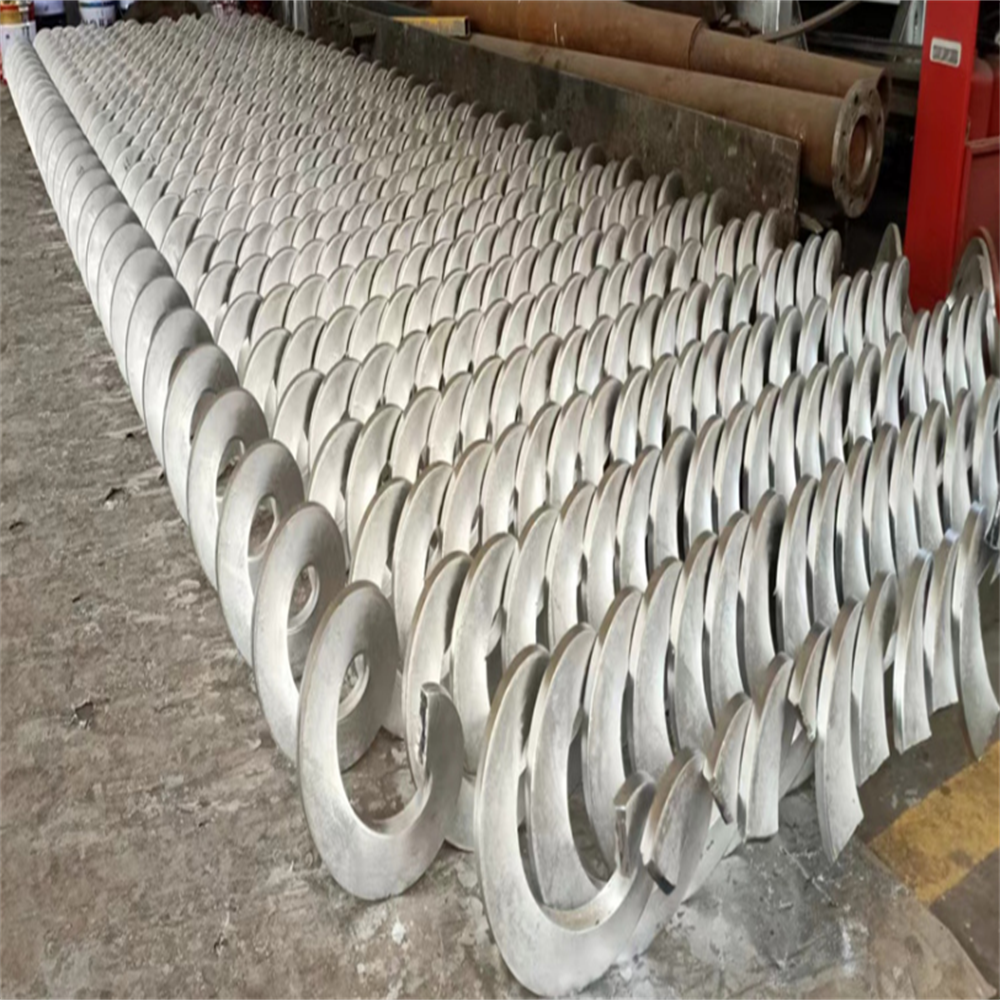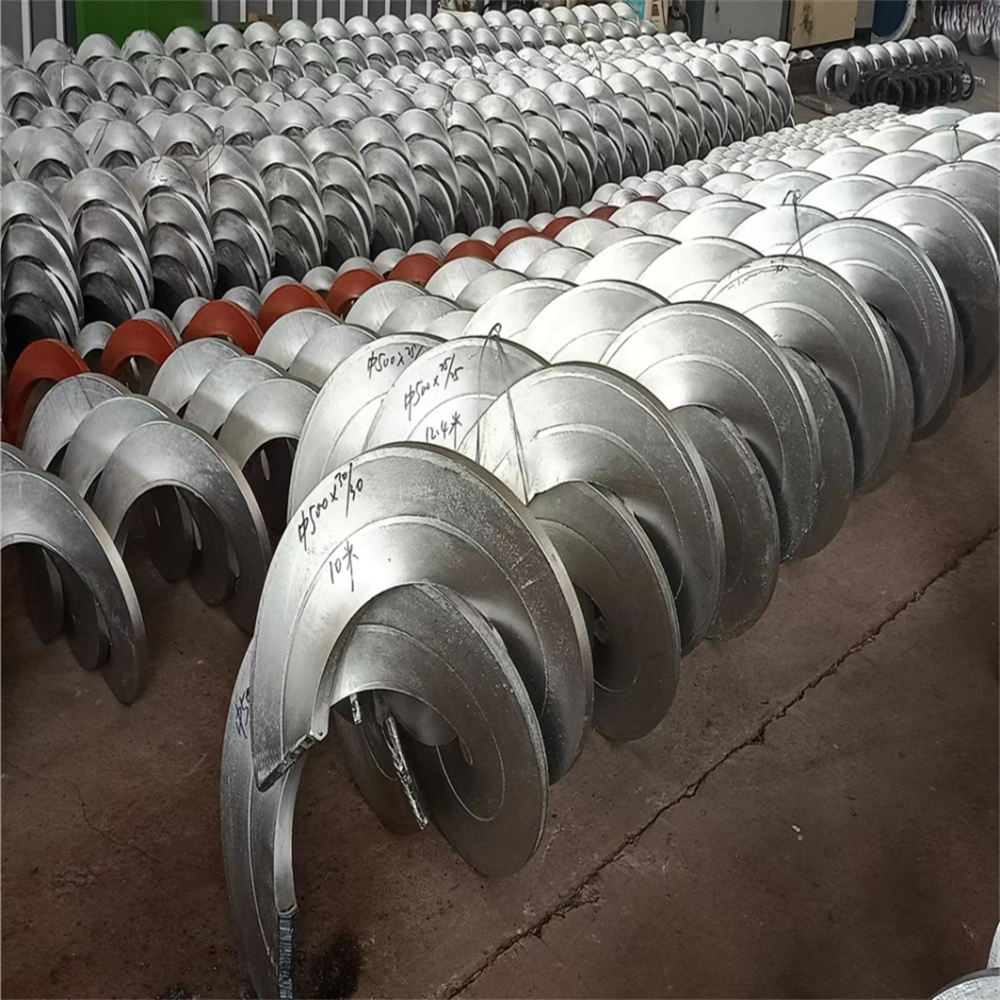Spirals are mainly used for stirring, mixing and other functions in pipeline transportation. The spiral surface of the screw conveyor has a solid spiral surface. , belt spiral surface and blade spiral surface transparent form. Screw Conveyor&Compactor,Quality Screw Machine,Automatic Conveying Feeder,Shaftless Screw Machine Wuxi Feiyiya Environmental Protection Technology Co., Ltd. , https://www.fefinegrille.com
The cold rolling mill is an advanced equipment that continuously rolls blades from strip steel. By adjusting the position (roll offset, feed height, roll pressure, guide wheel, etc.), it can roll out blades of various specifications required.


Advantages of cold rolling layout:
It has the advantages of high production efficiency, saving raw materials, good blade quality, high hole diameter, and good wear resistance.
The structures that affect the rolling shape include the material and thickness of the strip, the offset of the roll, the feeding height, the rolling force of the roll, the different specifications of the guide wheels and blades, and the increase in the temperature of the roll during the rolling process. After years of construction, the contract developed this continuous cold-rolled propeller, which has the advantages of smooth surface, high hardness, wear resistance, one-time forming, and continuous no welds.
Soaring oil prices affect the Hong Kong economy
Recently, the negative impact of the high oil prices and the Hong Kong economy began to surface. In addition to the pressure on Hong Kong's aviation and transportation industry, some export-oriented SMEs are also in trouble. People here fear that soaring oil prices will drag on Hong Kong's economic recovery. It is understood that in response to rising oil prices, 72 airlines with operations in Hong Kong have increased fuel surcharges for freighters by one-third from the 11th. Many oil companies also intend to increase prices in the short term. In fact, as international oil prices continued to climb, Hong Kong's oil product prices have been raised twice during the year. Accumulative increases in unleaded gasoline have risen by about 4%, and diesel prices have risen by more than 6%, setting the price level at a record high since January 2002. . The aircraft fuel price not only rose by more than 10% from last month, but also rose by about 50% from the same period last year. This is undoubtedly a "second-degree injury" to the aviation industry that was severely hit by SARS last year. At present, while Asian airlines, including Hong Kong, have decided to increase freighter fuel surcharges, some companies are considering introducing fuel surcharges to passenger flights to cope with soaring crude oil prices. Dragonair, Hong Kong's second-largest airline, is brewing fuel surcharges on passenger routes. High oil prices have also affected export-oriented SMEs. As the prices of oil and raw materials continue to rise, and some airlines generally increase fuel surcharges, some exporters have become almost unprofitable. Even more than 10 SMEs plan to no longer accept new orders from overseas, leaving some factories temporarily out of production. . In addition, the high international crude oil prices also narrowed the gross profit margin of some petrochemical producers. A chemical company mainly engaged in the manufacture of paint oil, said that crude oil prices have continued to rise in recent years and have already put pressure on the company's gross profit. The company will closely monitor the trend of oil prices. Expert analysis pointed out that Hong Kong is an economy that is totally dependent on imported petroleum products, and it is dependent on exports of goods and services. The three oil crises in the past 20 years have brought varying degrees of impact on Hong Kong. This time, the sharp rise in oil prices will inevitably have a negative impact on Hong Kong, including direct and indirect effects. Economists believe that the rise in international oil prices has an impact on every country and region. Hong Kong is a system that relies heavily on the external economy. Therefore, the impact will gradually surface, especially on the export side. Analysts estimate that due to the increase in world oil demand, the reduction in crude oil inventories, and the limited production and insurance policies of the Organization of Petroleum Exporting Countries, the high international oil prices will likely continue into this fall. The future oil target price is likely to increase from the original 22 to 28 US dollars to 32 to 34 US dollars, which will drag the pace of economic recovery in Hong Kong.